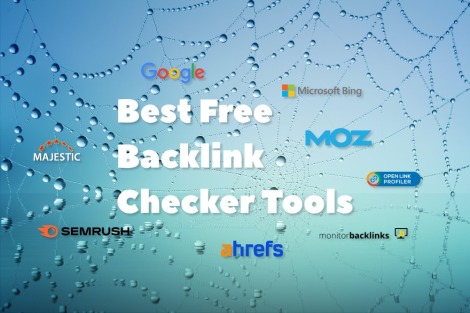When it comes to pay-per-click advertising, there are two ways to decrease your spending. You can lower your cost per click (which will lower your position and your CTR) or you can improve your ads (which will increase your CTR and your position). Great ads will attract more clicks for a given amount of impressions, which will be rewarded by Google Ads with lower bid prices or higher rankings.

The real secret to writing “the best ad on the page” is to ruthlessly test and track multiple ads over multiple test iterations. By doing this, you will improve your ad over time, and will eventually have a great performing ad with a very high click through rate.
But that doesn't mean that there aren't a few tips you could use to give your initial ads a boost, or to help you beat your personal best performing ad time and time again. So without further ado, here are 18 tips for writing better PPC ads.
1. Write ads for small groups of keywords
By grouping your keywords very tightly, and writing your ads specifically for those keywords, you will give yourself a large advantage over your competition. Many people are too lazy to take the time required to do this properly, yet it is something that will increase your CTR every single time.
2. Work your keywords into the ads as much as possible
If you took the advice from the previous tip, you will have an easier time with this one. You should try to get your keywords to appear multiple times in your ad so that you can take full advantage of keyword bolding. I sometimes include the keyword in all four lines of the PPC ad for maximum bolding.
3. Give the ads some visual appeal
This takes some additional creativity and planning, but can really help your ad to stand out. You can make each line progressively longer (or shorter) for a cascading effect, you can alternate lengths to create a visual “arrow” or “reverse arrow” shape within your ad, or you can make your ad intentionally extra short. All of these will help you ad differentiate itself from the competition and will hopefully attract some eyeballs.
4. Write ads with your audience in mind
When you are writing an ad, think to yourself “what is my audience looking for when they search for this keyword?” If you can “read their minds” and guess their internal dialog, you will be able to answer their exact questions and get their attention. This is another tip that is immensely easier if you group your keywords very tightly.
5. Create an attention-grabbing headline
Nothing in your ad is more important that your headline. The problem with PPC ads is that you don't get much space for it (30 characters with Google Ads). Craft your headline wisely, but don't stress over it too much, you will probably be split testing many, many different variations before you find the great ones.
6. Ask the audience a question
This is definitely a good strategy for certain markets. If you can work a question into your headline or description, test it out and see how it impacts the CTR. If someone is searching for something, and then you confirm what they are searching for, they are likely to click on your ad. Additionally, the tone of the question, along with the question mark, helps differentiate your ad from the others.
7. Use specific numbers
This is a common copywriting trick that has been used for decades. Numbers create interest and specific numbers create curiosity. They won't always perform better, but try to test the impact of including numbers in your ad.
If you can, include a very specific number such as “314″ instead of “300+” or “76.83%” instead of “75%”. You don't have to be 100% accurate with the numbers either, as long as you aren't blatantly lying.
8. Capitalize strategically
It is better to capitalize the first letter of every word? The first letter of important words? Just the first letter of words in the headline? Should you capitalize words in your display URL? You can never be sure until you have tested it, but it is something that you must test. I usually start out capitalizing everything, then try out any combinations I can think of.
9. Borrow ideas from others
Another copywriting principle that has been in practice for decades is borrowing ideas from other ads. Although you should technically only take “ideas” (such as rewriting an ad about “pens” to work with your “cheese” keywords), you won't get into any trouble copying direct competitors.
Take some of the top (or your favorite) ads that are being shown for your keywords and mix them up to create something new. It they are at the top of the listings, they probably have a pretty good ad (or are paying out the nose).
10. Emphasize the benefits of your offer
Yet another age-old copywriting principle. Your audience doesn't care how many features your are offering or how great they are, they want to know “What's in it for me?” If you can tell them, in your ad, what benefit they will get from giving you their click, you will likely have a successful ad.
11. Use words that evoke emotion
If you can effectively get people to feel emotions when reading your ad, they will probably feel compelled to click it. The list of emotion words goes on and on, so here is a nice guide to emotion words.
12. Test multiple versions of your display URL
This was touched on in tip number 8, but needs to be expanded. While you should experiment with capitalization (i.e. “DomainName.com” vs “domainname.com”), you should also experiment with “www”, sub domains, and pages. It usually, but not always, increases the CTR when you include the keywords in your URL.
You can essentially do this one of two ways: “Key-Words.DomainName.com” or “DomainName.com/Key-Words”. Although some uptight editors might disable these ads if the pages don't actually exist, you can resubmit them and a nicer editor will realize that there is no harm done.
13. Be cautious with prices
Although prices do have their place as negative qualifiers, they will usually be detrimental to your CTR. Unless your price is the lowest, it is probably best to leave it out of your ad. You can, instead, state the savings as a benefit to the user.
14. Include a call-to-action
Sometimes, the most effective way to get someone to do something is to simply ask them to do it. That's the principle behind the call to action.
Because you have such limited space in a PPC ad, the call-to-action might not be beneficial, but is is at least worth a test. Just including something like “Click here to receive this benefit” is sufficient.
15. Double check spelling and grammar
This might seem obvious, but is can very easy to make a stupid mistake. Having a grammatical or spelling error in your ad hurts the credibility of your ad and will most likely get it disable by an editor, costing you valuable testing time.
16. Don't waste space with useless words
Like I said before, the space available to you in a pay-per-click ad is extremely limited. Although your ads should be grammatically correct, they do not need to be sophisticated sentences. Keep them simply and concise so that it is easier for the reader to quickly understand what you are offering.
17. Use negative keywords
This isn't directly related to actually writing your ads, but it is definitely important. It goes along with tip number 1. If you don't use negative keywords, your ad is going to be triggered by keywords that you didn't intend for. When this happens, your ad will not match what the consumer was searching for, they will not click your ad, and your CTR will suffer.
18. Make the ad relevant to the landing page
I saved this suggestion for last because it will not effect the CTR of your ad in the least bit (it can, however, effect your landing page Quality Score). With that being said, it is still very important that you make your ad relevant to the landing page. If a visitor reads a particular offer or benefit in your ad, they are expecting to find it when they click through. Give them what you promised in your ad and you will experience higher conversions. Give them something that doesn't match the ad and you will have a lot of confused visitors who reach for the back button.
Conclusion
There you have it, eighteen tips I have learned through my experience with PPC marketing. Keep in mind that these are merely suggestions, they can't possibly be used all at once, and they won't always make for a better ad. You need to test every change you make to your ads to determine if it has a positive or negative overall effect.



